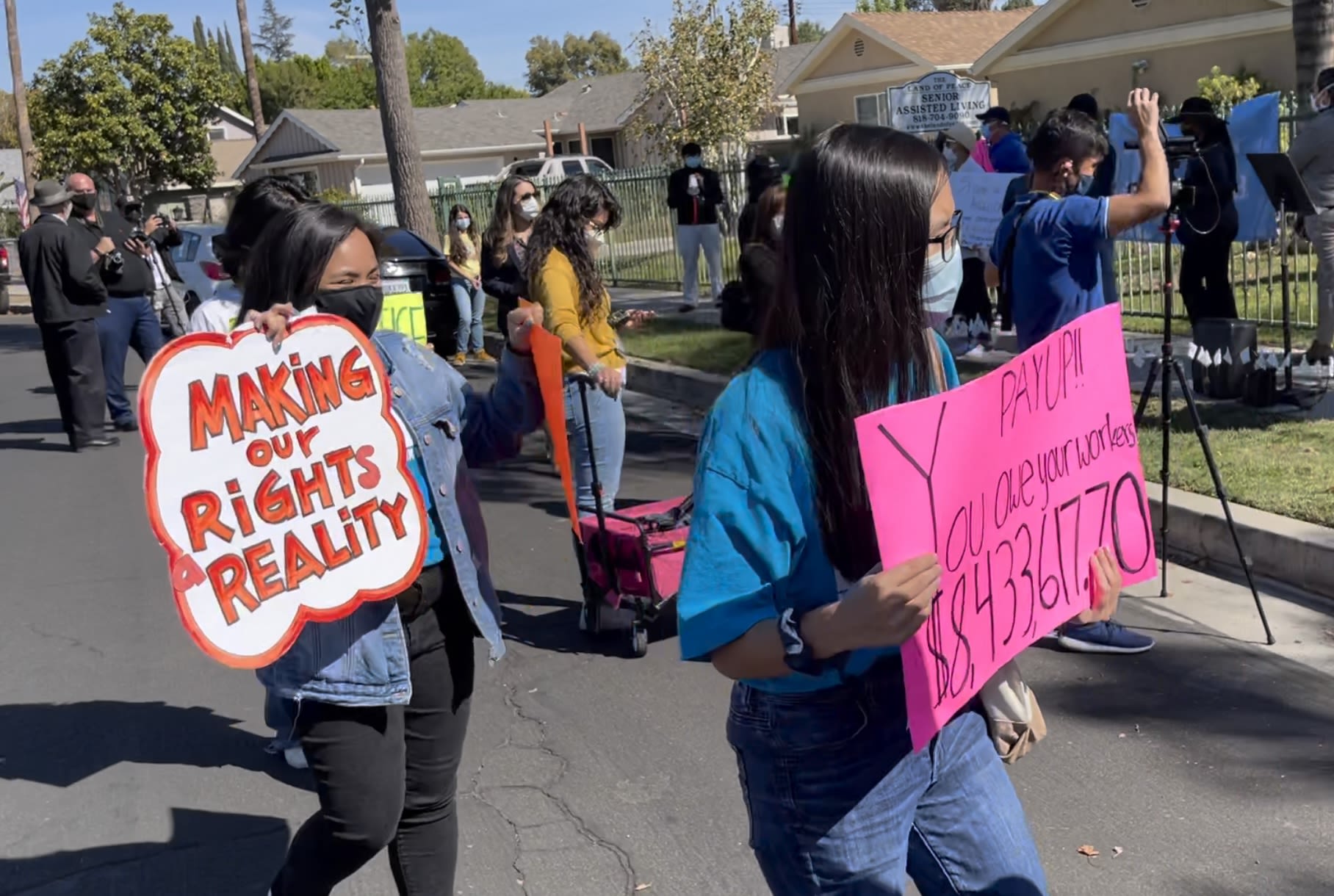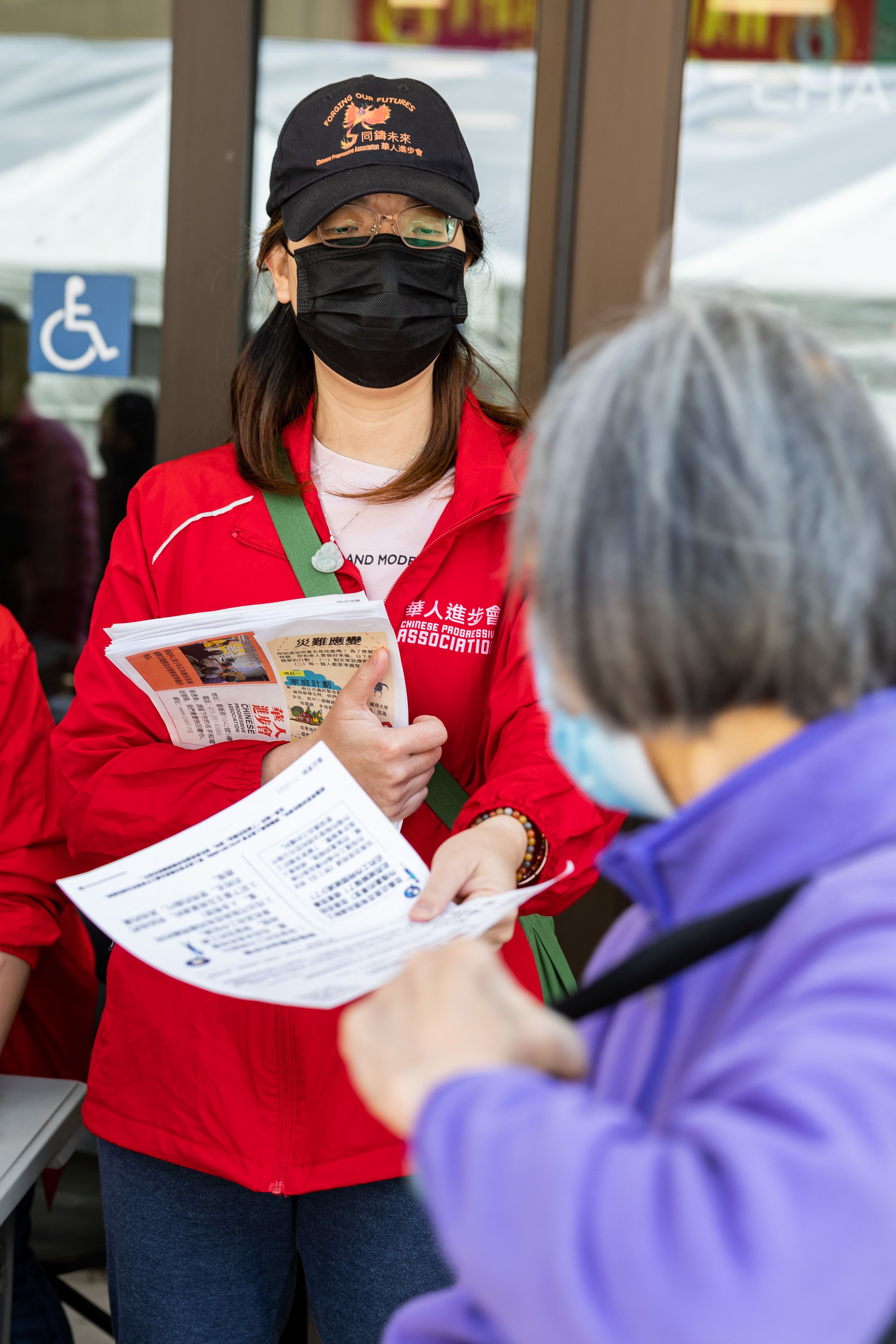Link: https://sponsored.chronicle.com/workers-taking-a/

By Shaw San Liu, Chinese Progressive Association, and Andre Oliver, The James Irvine Foundation
Every day, workers who strive to make ends meet in California and across the country fall prey to a practice that seeks to rob them of their wages and their dignity. They are the victims of wage theft, in which workers are paid less than minimum wage, aren’t paid overtime, have their tips stolen, work off-the-clock, or are denied meal or rest breaks.
They are farmworkers, prep cooks, cashiers, rideshare drivers, and residential care workers, among others. They are the essential workers who help drive our economy and the wellbeing of communities, guided by the principle that if you work hard and abide by the rules, our economic system will offer a chance for a decent life and a better one for future generations.
The James Irvine Foundation recently commissioned a series of stories that explore wage theft from the perspective of workers and the organizations that support them, such as the Chinese Progressive Association, among others. The series provides a glimpse into powerful, difficult, and inspiring stories about the lives of workers, the financial and emotional costs of wage theft, and how people are taking a stand to advance solutions. The hope is that any foundation that cares about economic justice and mobility will learn more about how wage theft affects their community and consider investing in solutions.
Wage theft is not a niche problem. In fact, it has profound implications for people in California and nationally. Economists estimate that it costs nearly 600,000 California workers eligible for minimum wage roughly $2 billion a year in lost wages. In the 10 most populous states, the cost is estimated to be $8 billion, according to the Economic Policy Institute.
In many ways, wage theft is just one example of attempts to reduce the power of workers. As the Roosevelt Institute noted in its assessment of our 21st century labor market, “Our current economic system is stacked against the interests of everyday people, and as a result, workers are being left behind. The erosion of worker voice, combined with increasing corporate and financial power, means that workers are increasingly vulnerable in today’s economy.”
Wage theft is most prevalent in industries that pay low wages, where in California roughly three in four workers are people of color. And for Black workers, discrimination is equally consequential, as they are the most likely to report unfair treatment in hiring, pay, or opportunities for promotions. Case in point: a 2022 survey of nearly 2,000 Black workers in Southern California by the UCLA Labor Center found that close to 70 percent of workers who lost their jobs or were furloughed during the pandemic have not been called back to work. Addressing wage theft is crucial to promoting social and racial justice.
More than the financial cost, stealing the wages of people already living paycheck to paycheck belies the notion that if you work hard and contribute to society you will be rewarded for your efforts and treated with respect. Subjecting workers to this has no place in a modern, civilized society.
The good news is that there are solutions to this challenge, with workers themselves at the center. Against the odds, workers are leading grassroots efforts that are part of a resurgence in labor organizing. This is especially powerful in California. While the actors and writers’ strikes captured headlines, hotel workers in Southern California have also walked the picket line for living wages and are slowly seeing their efforts bear fruit.
Retail workers in Los Angeles achieved a significant victory last year with the passage of a “fair work week” ordinance, which requires large retailers to provide work schedules to employees at least two weeks in advance and to give workers at least 10 of hours of rest between shifts or provide extra pay for their work. And roughly half a million fast food workers in the state will see their wages increase to $20 per hour next year, the result of organizing led by the Service Employees International Union.

In December 2023, 150 residential care workers in Los Angeles were awarded $5.5 million in unpaid wages in a case brought forth by partners in the California Strategic Enforcement Partnership.
Workers and their allies are also partnering with government in new and different ways to enforce labor laws. The California Labor Commissioner’s Office formed a partnership in 2016 with nearly 20 worker and legal aid organizations to pursue wage theft cases with the potential to mitigate labor violations in industries such as agriculture, car wash, construction, janitorial, residential care, restaurant, and warehousing.
Supported by the Irvine Foundation since its inception, the California Strategic Enforcement Partnership has identified more than $70 million in wage citations due to workers, with more than $11 million returned to workers’ pocketbooks and more wage recovery in the pipeline. Partners are pursuing avenues to deliver greater financial restitution to workers sooner, and experimenting with creative settlements that raise wages or improve workplace rules as an alternative to wage recovery alone.
Critically, the partnership improves the public sector’s knowledge and ability to be more responsive to the needs of workers and communities, including those who may fear or lack trust in government to defend their rights. More investments and new approaches like these are needed to protect workers in this changing economy, including partnerships with community groups and the business community. Funders like the Ford Foundation, Omidyar Network, the Open Society Foundations, and the Families and Workers Fund are following suit by supporting efforts at the national level that draw on the California model.

When advocates, like worker centers, have the support they need, they have been extremely successful at making the case for a strong and capable government that protects workers and holds employers accountable. Some of the excellent public sector innovations taking hold nationally include establishing dedicated local labor standards offices, creating boards or councils that provide workers a voice in public decision making, setting job quality standards for government contractors, and strengthening worker protection laws.
Efforts to tackle wage theft are moving in the right direction, but more needs to be done. Philanthropy can play a critical role here, by supporting local, state, or national partnerships working to enforce labor laws, help bring business to the table to discourage bad actors and ensure a level playing field, and most important, invest more deeply in groups that organize and mobilize workers.
If we learn nothing else from Wage Theft Stories, it’s that solutions must be grounded in the power and voices of workers themselves. Philanthropy needs to play a greater role in supporting nonprofits that organize and elevate those voices. As one California leader shared, “We are committed to grassroots organizing, because the best advocate is to be your own advocate.”
Shaw San Liu is the Executive Director at the Chinese Progressive Association. In her 17 years at CPA, Shaw San led the development of grassroots organizing and leadership development programs with the Tenant Worker Center, which includes services for low-wage Chinese immigrant workers and tenants living in San Francisco’s Chinatown. She also spearheaded campaign and alliance building to advance policy on labor and economic issues in the Bay Area. She co-founded an alliance of low-wage worker centers in San Francisco and has extensive experience with labor and community organizing.
Andre Oliver leads The James Irvine Foundation’s Fair Work initiative, which aims to expand the voice and influence of low-wage workers on the issues that affect their lives and livelihoods. Andre also led the Foundation’s Leadership Awards program from 2014 to 2018. He brings more than two decades of experience in the public policy and advocacy arenas, holding senior positions within philanthropy, political consulting, and government.
